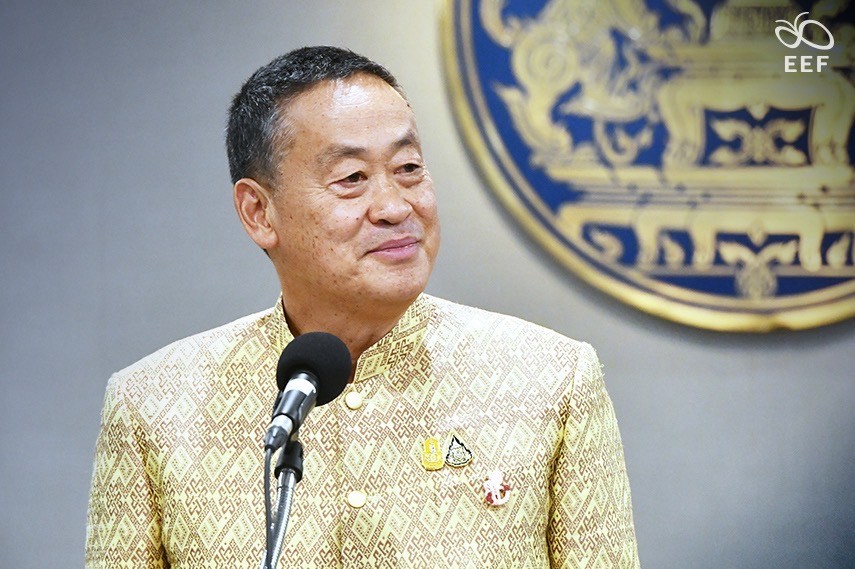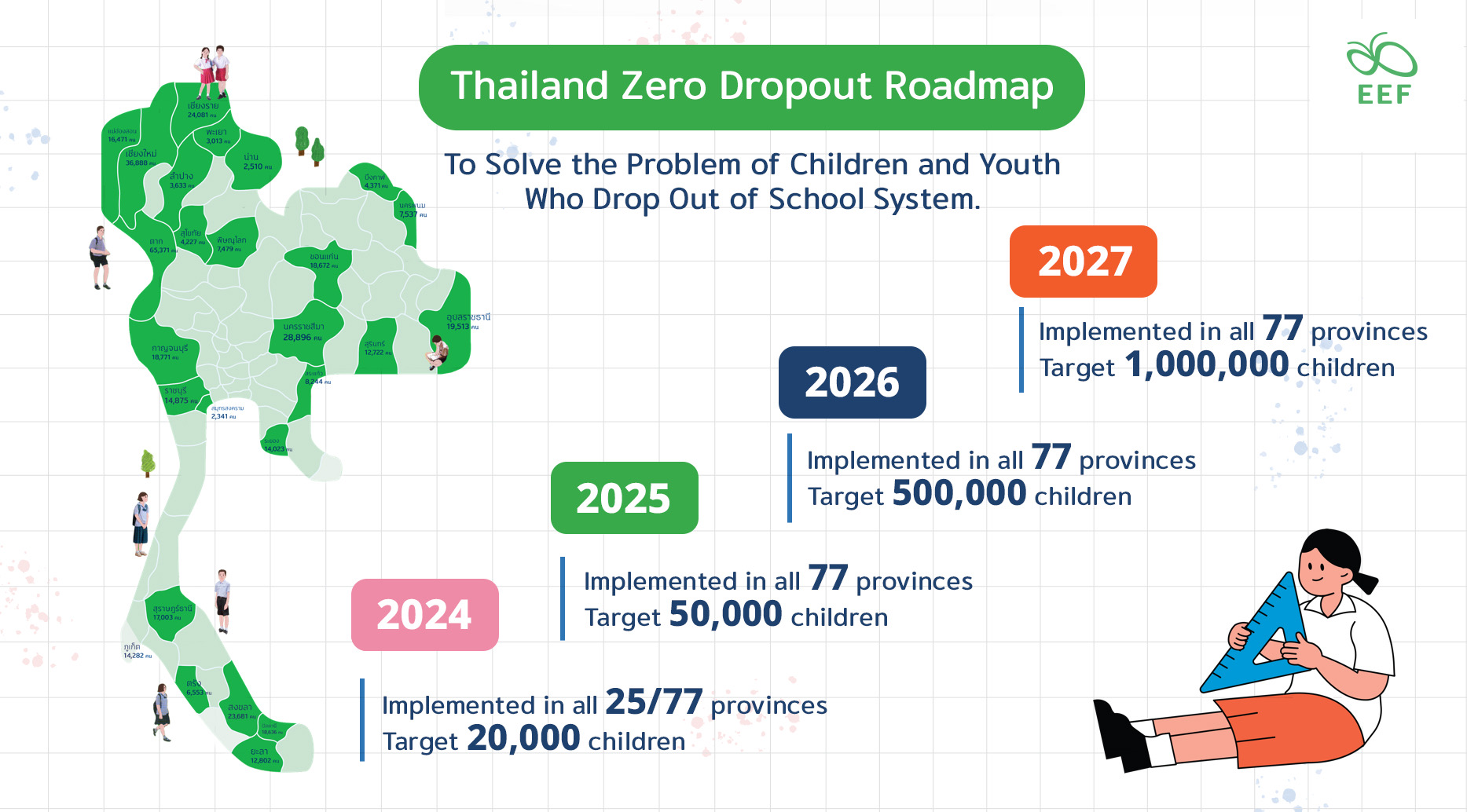
Bangkok, Thailand (May 28, 2024) — The Thai Cabinet has endorsed comprehensive measures under the Thailand Zero Dropout initiative, intending to reintegrate 1,000,000 out-of-school children and youth by 2027. In this historic announcement, Deputy Government Spokesperson Mr. Karom Polpornklang outlined the key steps in this ambitious plan.

- Identifying Out-of-School Children and Youth through Inter-Ministerial Data Integration: Data from the Ministry of Education (MOE), Ministry of Interior (MOI), and other relevant bodies will be integrated. The Ministry of Digital Economy and Society (MDES) will lead this effort, supported by the MOI, MOE, Ministry of Foreign Affairs (MFA), Ministry of Social Development and Human Security (MSDHS), and Ministry of Public Health (MOPH). Moreover, a national committee of experts and representatives from these agencies will be established to oversee the long-term development of a central information system for effective data integration and search.
- Providing Tailored Support: Inter-agency collaboration will track, assist, refer, and support out-of-school children and youth, ensuring tailored assistance in education, health, development, living conditions, and social circumstances. Provincial committees, led by provincial governors, will manage integrated area-based education, with local operational centers, known as “Sub-District Equitable Education Centers,” providing grassroots support, all overseen by local administrative organizations at the sub-district or municipality levels. This effort involves the MOI, MSDHS, MOE, MOPH, and the Equitable Education Fund (EEF) Thailand.
- Offering Flexible and Quality Education Tailored to Each Child and Youth’s Potential: Flexible curricula with accreditation or equivalency certification will be developed for formal, non-formal, and informal education, tailored to each child and youth’s potential. Local organizations, religious bodies, private enterprises, civil society entities, and communities will ensure informal education is adaptable to local needs. Furthermore, partnership with private enterprises will promote work-integrated learning, developing vocational skills aligned with labor market needs all while providing supplementary income during education. The MOE, MDES, MOI, Ministry of Labor (MOL), private educational institutions, and other stakeholders will drive these efforts.
- Encouraging Private Sector Involvement: The “Learn to Earn” programs will implement work-integrated learning for children and youth aged 15-18, encouraging entrepreneurial involvement through tax incentives. The Ministry of Finance (MF) will facilitate this effort, alongside efforts by the MOL to involve private enterprises in organizing education integrated with work.

“The Thailand Zero Dropout initiative will pilot in 25 provinces, targeting the reintegration of 20,000 out-of-school children and youth back into flexible education in the fiscal year 2024. In the fiscal year 2025, the initiative will expand to all 77 provinces, with a target of 50,000 reintegrated students. The goal is to reach 500,000 in the fiscal year 2026 and achieve a cumulative target of 1,000,000 by 2027, fulfilling our set objectives,” concluded the Deputy Government Spokesperson.


